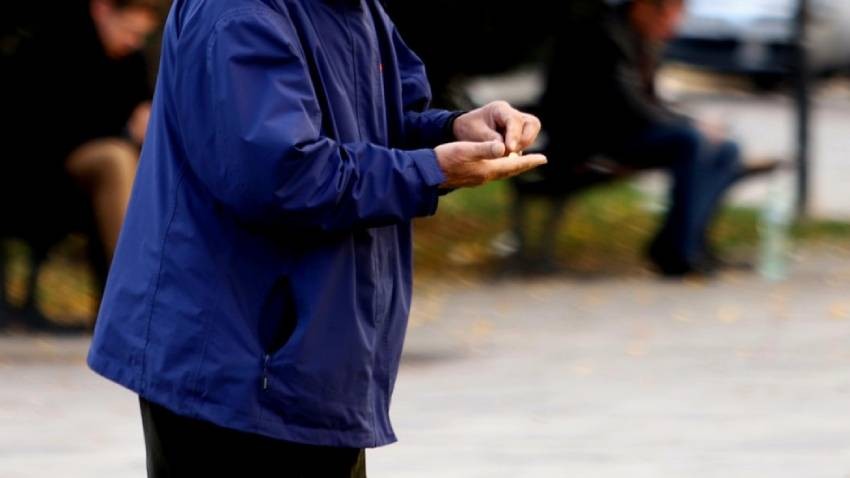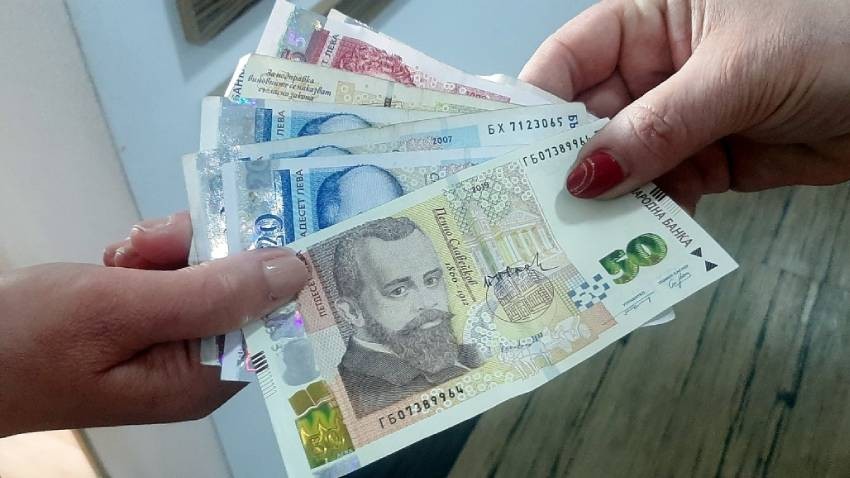A little over 1,450 Leva is the sum needed per month by an individual living in a one-person household, and a total of 2,616 Leva for the monthly upkeep of a three-member household - as is the most widespread model in Bulgaria at the moment (two working adults plus one child under 14). The analysis is by the Institute for Social and Trade Union Research of the Confederation of Independent Trade Unions in Bulgaria (CITUB) which monitors and analyses data regarding prices in relation to incomes every three months of the year in Bulgaria. 
Anyone working in Bulgaria will agree that the sum of around EUR 700 per month covers the cost of the basic daily needs such as electricity, water, heating – and the prices of some of them have gone up since the beginning of the year. Such a sum will also cover the cost of some food – though without any extravagance. However, that leaves no money for education, or culture, a holiday or travel.
65% of the people employed in Bulgaria, however, fall short of EUR 700 a month. Not to mention the fact that, according to National Statistical Institute data, there are around 800,000 people in the country living on an average income of under 1,000 Leva (or EUR 500) – they are the working poor, especially if we take a look at latest inflation data. According to the National Statistical Institute, the prices of petrol, gas and diesel, as well as of water have gone up since February. Experts have ascertained a stabilization of the prices of vegetables, vegetable oil, eggs, cheese and other staples, and the conclusion the trade unions are drawing is that even though there are positive tendencies on the market “in Bulgaria we are very far from closing the gap between the subsistence income (1,450 Leva per month) and the minimum salary (933 Leva per month since the beginning of the year).” That is easy to see if we make a comparison with the other European countries, says CITUB economist Lyuboslav Kostov:
“For example, one employed person in Bulgaria has to work from January until 15 April to earn, in total, a sum equal to one minimum salary in Germany. If we make a comparison with Luxemburg, then it would be May. Comparing incomes in Bulgaria with incomes in these countries we can see how far behind we are from the average European incomes, and this given that the difference in productivity of labour in this country and in other countries is not all that big. Whereas in Bulgaria it is half that in other European countries, there is a 5 times difference in salaries. Which means there is a glaring difference in the standard of living.”
The picture is not rosy for one more reason as well – the growth rate of the minimum salary. It stands at 933 Leva, or half of the average contribution basis for the country, but the demand by the CIRUB is that the minimum salary be adequate to the current essential subsistence costs in Bulgaria. “When this salary comes close to the subsistence salary this means something is being done to protect the interests of the working people in Bulgaria,” says Lyuboslav Kostov. 
“The differences in the prices from the small consumer basket – the staple commodities no household can do without – is also a criterion of where we stand comparted to others in Europe. In Bulgaria, a minimum monthly salary can buy the 20 staple foods no more than 8 times over, whereas in neighbouring Romania, where the inflation rate is higher than it is in this country, a minimum salary can buy them 15 times over, in Germany we go even further – a minimum salary can buy all of the 20 staple commodities 33 times over. The positive tendency is that in the space of one month the number of people with low incomes has gone down by 1%.”

In this regard, the CITUB is demanding that the subsistence salary continue to grow – on a quarterly, as well as on an annual basis. As the trade unionists have noticed that inflation for the small consumer basket has gone up by a little over 4% during the first quarter of the year, they are demanding an increase in salaries for the same period.
Translated and posted by Milena Daynova
Photos: BTA, BGNES
A 3-day culture and gastro festival is taking place in Antimovo village near Vidin. For the 14 th time the Razvitie-1926 chitalishte (community culture club) and the municipality are organizing the Gergiovden (St. George’s Day) festival..
The number of Bulgarian young people wishing to study higher education abroad has increased by 60% compared to 2023 , data from the World Education exhibition show, BNR Stara Zagora reported. The Netherlands continues to be in the leading..
Bulgaria took part in the traditional May 1 Parade of vintage cars in Presidencia Roque Saenz Peña, Chaco province, in distant Argentina , when the anniversary of the establishment of the settlement is celebrated. Bulgaria was represented by the local..
Bulgarian expatriates in Las Vegas will gather this Easter for the traditional Bulgarian Festival. The organisers of the Bulgarian-American Association in..
Bulgaria took part in the traditional May 1 Parade of vintage cars in Presidencia Roque Saenz Peña, Chaco province, in distant Argentina , when the..
The number of Bulgarian young people wishing to study higher education abroad has increased by 60% compared to 2023 , data from the World Education..

+359 2 9336 661
